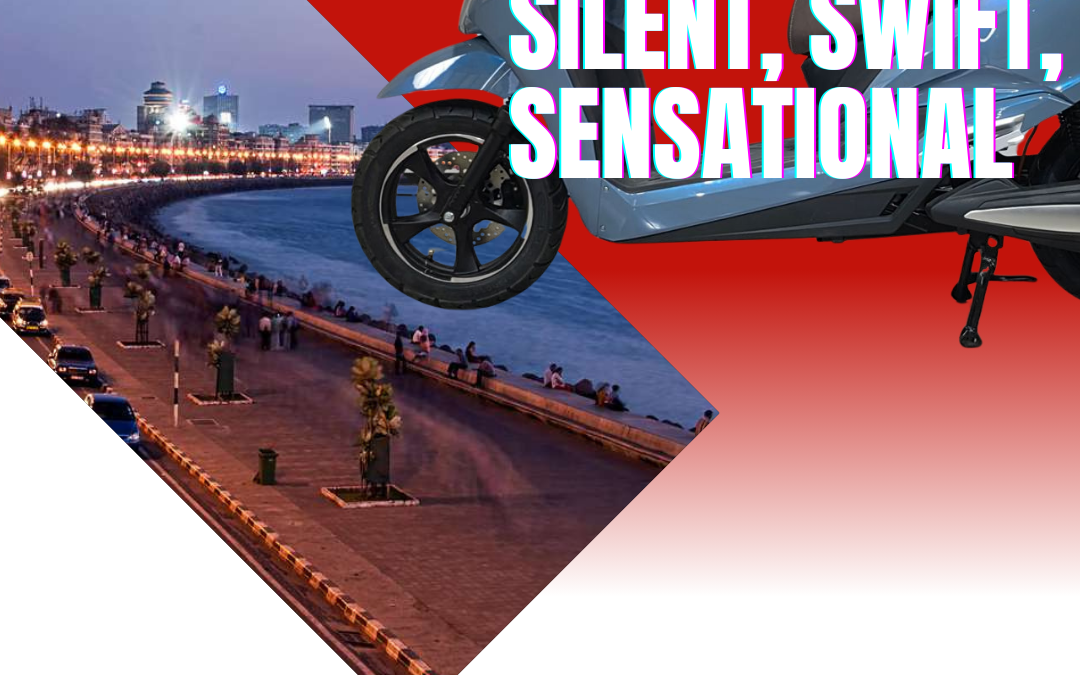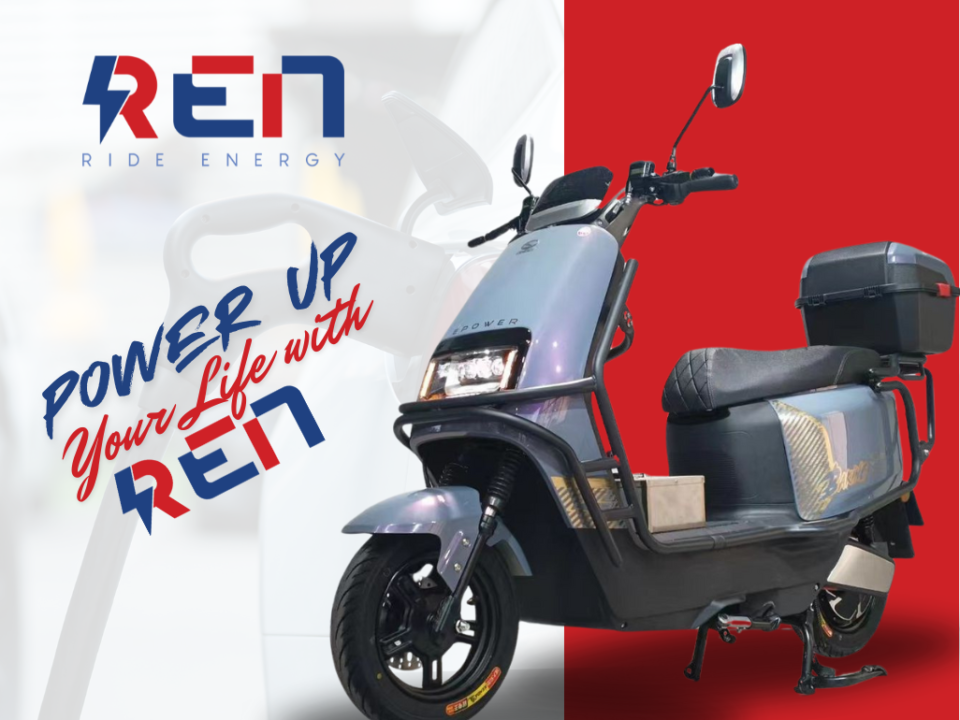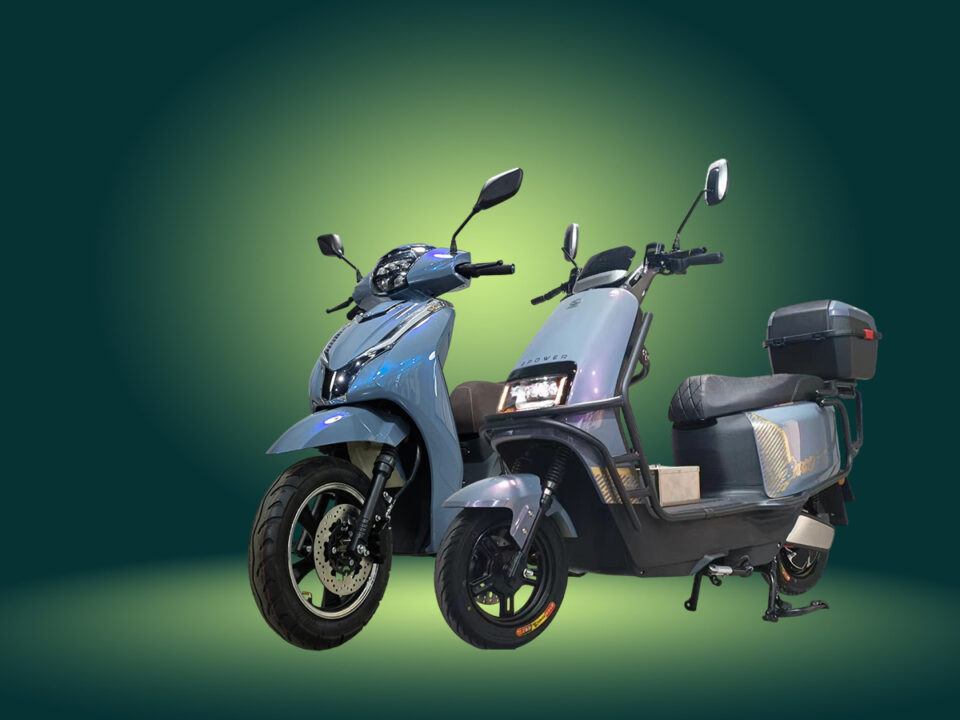
Riding the Future: How Electric Scooters Are Changing Urban Mobility
March 11, 2025
Top Reasons to Switch to an E-Scooter Today
March 29, 2025Introduction
The electric vehicle (EV) revolution in India is gaining momentum, and one of the key drivers of this transformation is the government’s push towards sustainable mobility. Electric scooters, in particular, have seen significant growth, thanks to favorable policies, subsidies, and incentives introduced by the Indian government. As concerns over pollution and fossil fuel dependency rise, policymakers are implementing strategic measures to accelerate EV adoption.
In this blog, we will explore the various government policies shaping the EV scooter industry in India, their impact on manufacturers and consumers, and what the future holds for electric mobility.
1. FAME Scheme: Accelerating EV Adoption
One of the most influential policies shaping the EV scooter industry is the Faster Adoption and Manufacturing of Electric Vehicles (FAME) scheme. Launched in 2015, FAME aims to promote electric mobility by offering financial incentives to buyers and manufacturers.
FAME-I (2015-2019)
- Provided financial support for electric two-wheelers, three-wheelers, and four-wheelers.
- Focused on developing charging infrastructure.
- Aimed at reducing dependency on fossil fuels and curbing vehicular emissions.
FAME-II (2019-Present)
- Allocated ₹10,000 crore to promote EVs, with a strong focus on two-wheelers.
- Offers subsidies of ₹15,000 per kWh for electric scooters.
- Encourages localized manufacturing of EV components like batteries and motors.
FAME-II has significantly reduced the cost of EV scooters, making them more affordable for Indian consumers.
2. Production-Linked Incentive (PLI) Scheme
The government introduced the PLI scheme for Advanced Chemistry Cell (ACC) battery storage to boost domestic EV battery production. Since batteries account for nearly 40% of an EV scooter’s cost, this initiative aims to reduce reliance on imports and lower the overall price of electric two-wheelers.
Under this scheme:
- The government has earmarked ₹18,100 crore for battery manufacturing.
- The incentive is expected to increase the production of indigenous EV batteries, reducing costs in the long run.
- Local production means better supply chain management and economic benefits for Indian manufacturers.
3. GST Reduction on EVs
To make electric vehicles more affordable, the Indian government has slashed the Goods and Services Tax (GST) on EVs:
- EVs now attract only 5% GST, compared to 28% on petrol and diesel vehicles.
- Lower GST directly benefits consumers by making EV scooters more budget-friendly.
4. State-Wise EV Policies and Incentives
Several states have introduced their own EV policies, offering additional subsidies, tax exemptions, and incentives to buyers.
Some of the leading states promoting EV adoption include:
Delhi
- Offers subsidies up to ₹30,000 per electric scooter.
- Exempts road tax and registration fees.
- Focuses on developing charging stations and battery-swapping networks.
Maharashtra
- Provides incentives of up to ₹25,000 for two-wheelers.
- Encourages the setting up of EV manufacturing units.
Tamil Nadu
- Offers tax exemptions and subsidies to boost EV manufacturing and R&D.
- Focuses on job creation in the EV sector.
Karnataka
- First state to introduce a comprehensive EV policy.
- Provides incentives for EV startups and battery technology innovations.
These state policies complement national initiatives and create a supportive environment for the EV scooter industry.
5. Push for Charging Infrastructure
One of the key challenges for EV scooter adoption has been range anxiety due to the lack of charging stations. The Indian government has taken steps to address this by:
- Setting up charging stations at petrol pumps.
- Mandating EV-friendly parking in new commercial and residential buildings.
- Providing subsidies for private and public charging stations.
Initiatives like the Battery Swapping Policy aim to make refueling EV scooters as convenient as refueling petrol vehicles.
6. Ban on Petrol Two-Wheelers & Future Roadmap
To reduce carbon emissions, several cities and states are considering banning petrol two-wheelers by 2030. This move will drive more consumers towards electric scooters.
Additionally, the government is working on:
- Mandating EV quotas for two-wheeler manufacturers.
- Introducing stricter emission norms for internal combustion engine (ICE) vehicles.
- Developing smart cities with integrated EV-friendly infrastructure.
7. Impact on Consumers and Manufacturers
For Consumers:
- Lower Prices: Thanks to subsidies and tax cuts, electric scooters are now more affordable than ever.
- Lower Running Costs: EV scooters cost significantly less per km compared to petrol scooters.
- Convenience: More charging stations and battery-swapping facilities are reducing range anxiety.
For Manufacturers:
- Boost in Production: Schemes like PLI and FAME encourage local manufacturing.
- More Innovation: Investment in R&D is leading to better battery life and performance.
- Increased Competition: More players are entering the market, offering better products at competitive prices.
8. Challenges and Roadblocks
Despite strong government support, the EV scooter industry still faces hurdles:
- High Initial Cost Without Subsidies: If subsidies are reduced in the future, prices may rise.
- Charging Infrastructure Needs Expansion: Rural areas still lack sufficient charging stations.
- Battery Recycling and Disposal: Proper disposal and recycling of lithium-ion batteries remain a challenge.
- Consumer Awareness: Many people are still unfamiliar with the benefits of EVs, leading to hesitation in switching from petrol scooters.
Conclusion
The Indian government’s policies have played a crucial role in accelerating the EV scooter industry, making electric two-wheelers more accessible, affordable, and practical. With continued investment in infrastructure, R&D, and consumer incentives, India is well on its way to becoming a global leader in electric mobility.
While challenges remain, the future of EV scooters in India looks promising. With ongoing government support and increasing consumer adoption, we are witnessing the dawn of a cleaner, greener, and more sustainable transportation era.
Are you ready to make the switch to an EV scooter? Let us know in the comments!



